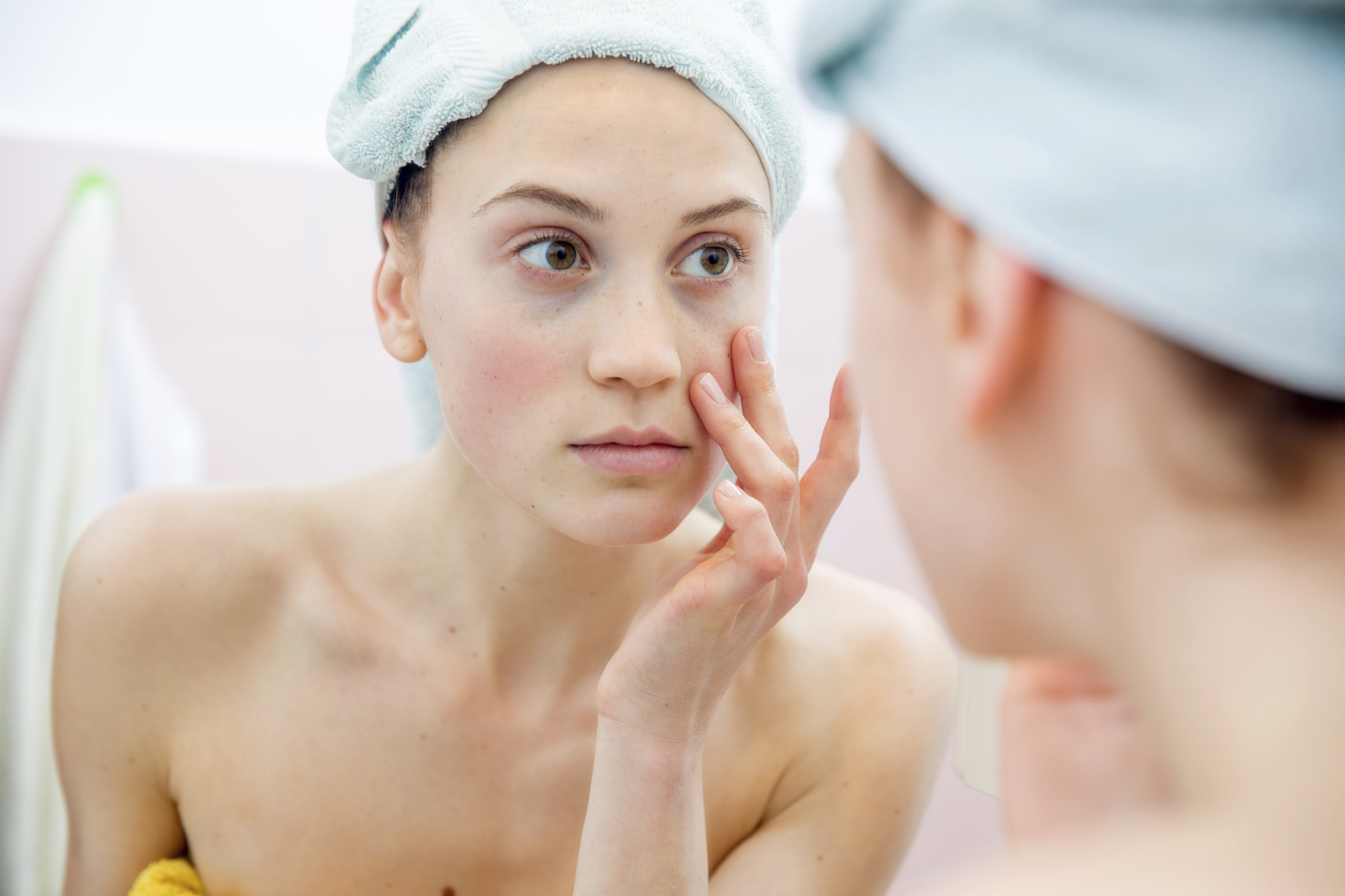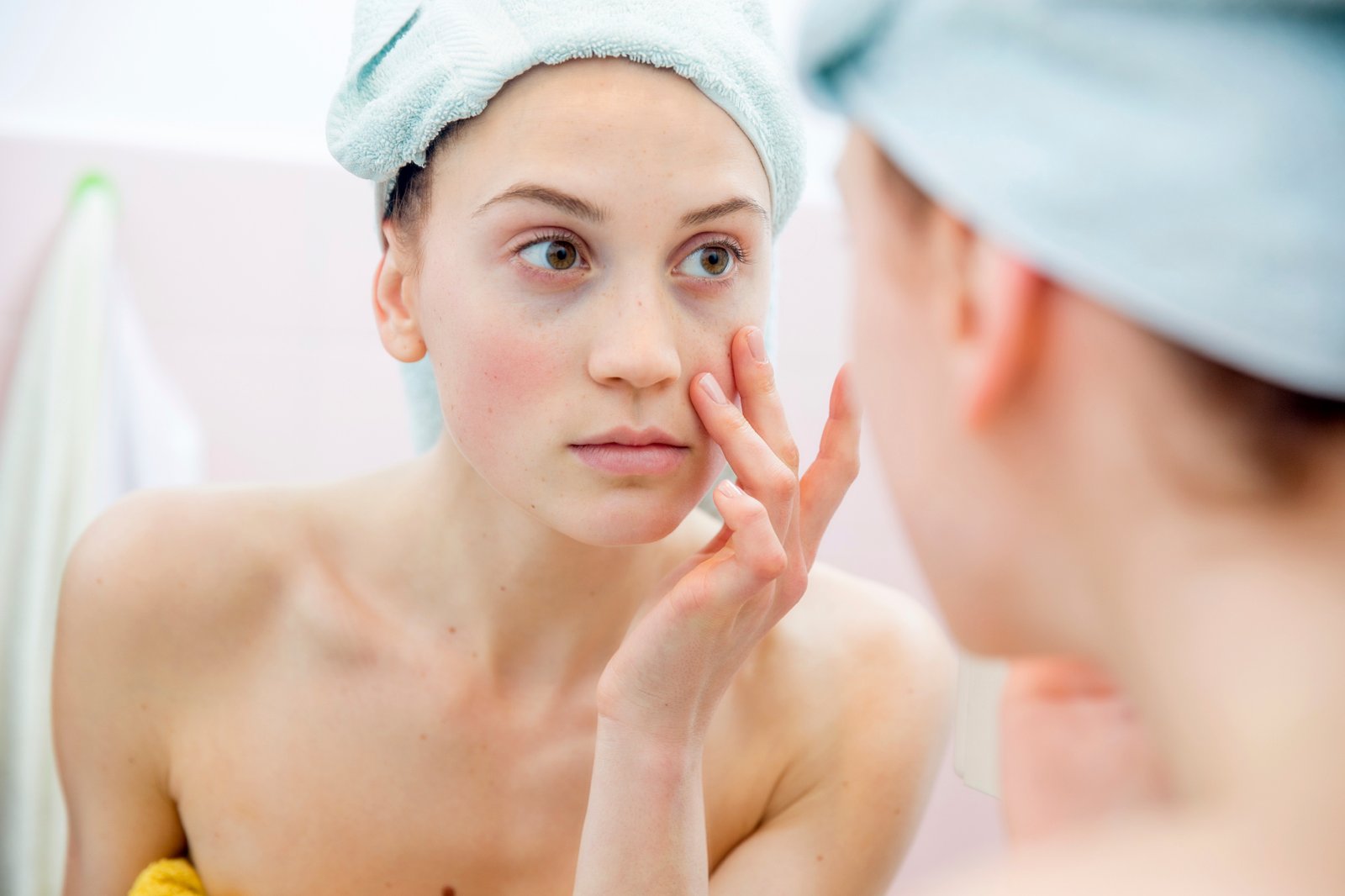The gut is our second brain and it can affect the health of the skin much more than you think. With proper diet, probiotics and supplements, dermobiotics can be helpful in restoring gut and skin microflora balance

You look in the mirror and you have it dull skinor a form thereof acne aggressive? It could be gut dependent and a dermobiotic visit may be helpful. Aristotle said that all diseases originate in the gut, while the German philosopher Feuerbach argued that we are what we eat. Therefore, the gut is our second brain and therefore affects our health. A statement that today is more relevant than ever dermobiotics.
What are dermobiotics?
When we talk about dermobiotics, we mean the complex relationship of the skin and its pathologies with nutrition and microflora, i.e. the bacterial flora present in the intestine. “It is as if we had discovered that we had another organ inside us, not made of human but microbial cells,” he points out. Marco Piniati, surgeon, specialized in dermatology, director of the dermobiotic clinic at the Vita Cutis clinic in Milan and author Gut and skin health Terranuova edition, created in collaboration with nutritionist Laura Lodi. “This new medical discipline therefore studies all the interactions that see the microbiota as a possible new front for diagnostic and therapeutic intervention, creating a real gut-skin axis” he points out.
Until recently, the cause of skin pathologies was thought to be acne, atopic dermatitis, seborrheic dermatitis, eczema could be attributed to genetics (stress and hormones). or to environmental factors such as the presence of fungi or mites. These studies have shown that it is often what makes the difference microorganisms which normally inhabit the skin and intestine. In fact, it is not uncommon for these patients to also complain of intestinal symptoms such as constipation, abdominal swelling, bad breath and chronic fatigue.
The role of microflora
In light of this discovery, to have a healthy body you must take care of yourself first and foremost microflora and therefore to restore its balance (which we call “ebiotics”) at gut and skin level. “We start by focusing on analyzing how intestinal dysbiosis (alteration of bacterial flora) can affect skin health,” says the doctor. “Identify and analyze the molecular pathways underlying these processes. And especially if it is possible to modify the balance of bacteria residing in the gut to improve the clinical picture at the skin level.”
ONE dermobiotic visit cost between 130 and 200 euros and, in addition to the dermatological examination, it includes blood tests that evaluate the metabolic and hormonal axes, an examination of the intestinal microflora and writing a food diary. “After taking the patient’s medical history, lifestyle and diet analysis, we proceed with blood, urine and stool tests to study the intestinal microflora and understand the level of dysbiosis present.”
Skin pathologies that can be treated with dermobiotics
Dermobiotics allows you to act on two levels: on alterations of the intestinal microfloraespecially in chronic autoimmune inflammatory diseases (psoriasis, atopic dermatitis and vitiligo) and surface dysbiosis that affect the microflora of the skin, especially in pathologies such as acne, seborrheic dermatitis, rosacea and pityriasis versicolor.
“With dermobiotics, we first try to identify the causes of the pathologies and then act following the 4R protocol: remove, replace, repair and balance,” emphasizes the dermatologist. “In this way, treatment involves removing intestinal and skin agents capable of damaging the microflora and replacing them with other eubiotic agents (diet and cosmetics). as well as repairing damaged barriers and balancing the microflora in dysbiosis.”
The sooner you start, the better
There is no ideal time to visit dermobiotics other than to suspect that a skin problem may be linked to intestinal disorders, but it is certainly important to prevention.
“Submitting a child to a dermobiotic test is essential if they have risk factors for dysbiosis,” emphasizes Pignatti. “Especially if the baby was born by caesarean section and was artificially breastfed, or if the mother had dysbiosis problems before giving birth or took antibiotics during pregnancy, she may be more exposed to atopic dermatitis, asthma or allergies. So, a newborn with this history could benefit from the dermobiotic approach as prevention to reduce the risk of getting sick later.”
Taking care of your diet is essential
“LARGE’diet In all of this, it has a decisive role – concludes the expert – because it is the most important regulator of the intestinal microflora. Therefore, after identifying the causes of a pathology, we act to remove them and start with nutrition. Each patient receives personalized care that includes: nutritional advice, prescription of probiotics and supplements to correct existing imbalances.”
In general, an ideal diet for the microflora includes the use of simple (unprocessed) and seasonal foods. good fiber intake (at least two servings of whole grains and five servings of fruit and vegetables a day and legumes at least three times a week); In a period of time between three months and two years dermobiotics is able to improve the microflora and the state of health of each one of us.
Ask our experts your question

